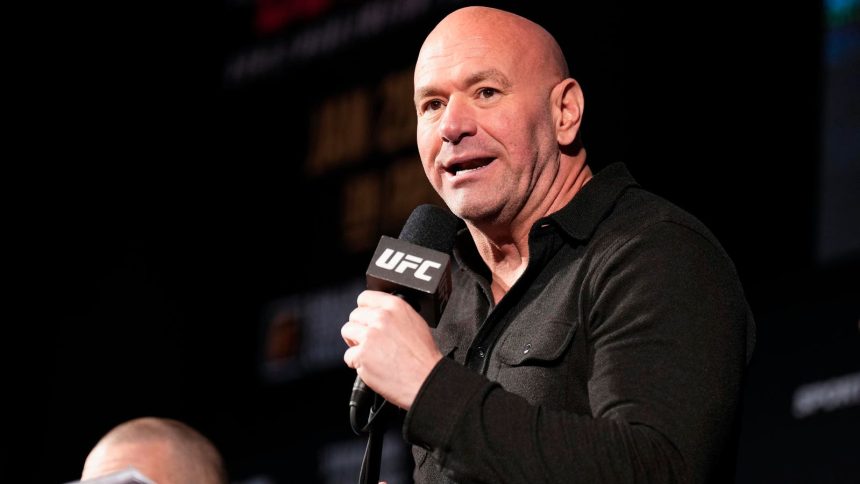Dana White’s post-UFC 310 call for the retirements of Clay Guida, Anthony Smith, and Chris Weidman underscores the difficult conversation surrounding fighter safety and the delicate balance between a fighter’s autonomy and their long-term well-being. While White’s blunt delivery may be contentious, his concern stems from witnessing the physical toll exacted by the sport, particularly on veterans who have dedicated years to competing at the highest level. The question he raises is not simply about winning or losing, but about the potential for irreversible damage when fighters continue past their prime.
Guida, at 43, represents the most straightforward case. His recent loss to Chase Hooper, a submission defeat in just 79 seconds, highlights the widening gap between his abilities and those of younger, rising contenders. With three consecutive losses and a record standing at 38-25, the reality is stark: Guida is unlikely to regain championship contention. Continuing to fight, particularly against younger opponents, exposes him to further physical punishment with diminishing returns. While financial considerations might be a factor, the risk of long-term health complications outweighs the potential monetary gains.
Smith’s situation is more nuanced, complicated by the recent and tragic loss of his coach and close friend, Scott Morton. While not as demonstrably past his prime as Guida, Smith’s performance against Dominick Reyes, culminating in a second-round TKO loss, revealed a fighter struggling both physically and emotionally. Competing with a heavy heart, Smith appeared unable to focus on executing a game plan, his movements lacking the usual sharpness and precision. The raw emotion displayed post-fight, coupled with his contemplation of retirement in the octagon, suggests that Smith is wrestling with the difficult decision of whether to continue fighting, a decision made even more complex by the absence of his longtime mentor.
Weidman’s case presents a different kind of challenge. A former middleweight champion, Weidman has experienced a string of setbacks and injuries that have hampered his ability to perform at the elite level he once occupied. His loss to Eryk Anders, a second-round TKO in a catchweight bout, was particularly concerning. Anders, a former college football player, dominated Weidman on the ground, a surprising outcome given Weidman’s world-class wrestling credentials. While Weidman’s defiant exit from the octagon without acknowledging Rogan or announcing his retirement signals a reluctance to concede, White’s repeated calls for his retirement reflect a growing concern for Weidman’s long-term health, especially considering the cumulative effect of previous injuries.
White’s intervention, while potentially viewed as overstepping by some, highlights the difficult position of a promoter tasked with balancing fighter safety with the demands of a competitive sport. He is not a medical professional, but he has a front-row seat to the physical toll the sport takes on its athletes. His calls for retirement, while often met with resistance from fighters who are fiercely independent and driven, are rooted in a genuine concern for their well-being. The decision to retire ultimately rests with the fighters themselves, but White’s public statements serve as a stark reminder of the risks involved and the importance of prioritizing long-term health over short-term gains.
The UFC 310 event, beyond the controversies surrounding potential retirements, provided a showcase of both established talent and rising stars. Alexandre Pantoja solidified his position as a top flyweight contender with a submission victory over Kai Asakura, while Shavkat Rakhmonov continued his undefeated run with a unanimous decision victory against Ian Machado Garry. Ciryl Gane edged out Alexander Volkov in a closely contested split decision, further solidifying his place in the heavyweight division. Bryce Mitchell demonstrated his grappling prowess with a quick TKO victory over Kron Gracie, and Doo Ho Choi returned to the win column with an exciting TKO finish of Nate Landwehr.
The undercard also featured compelling matchups, with Vicente Luque securing a swift submission victory over Themba Gorimbo, and Movsar Evloev earning a hard-fought decision win against Aljamain Sterling. Bryan Battle edged out Randy Brown in a split decision, and Joshua Van secured a dominant victory over Cody Durden. Michael Chiesa submitted Max Griffin with a rear-naked choke, and Chase Hooper’s armbar submission of Clay Guida further underscored the veteran’s vulnerability. Finally, Kennedy Nzechukwu delivered a first-round TKO victory over Lukasz Brzeski, showcasing his power and finishing ability. The event, as a whole, provided a mix of thrilling finishes and close decisions, reaffirming the unpredictable nature of MMA competition. However, the overarching narrative of the night remained centered on the difficult conversations surrounding fighter safety and the delicate balance between pushing one’s limits and knowing when to walk away.



